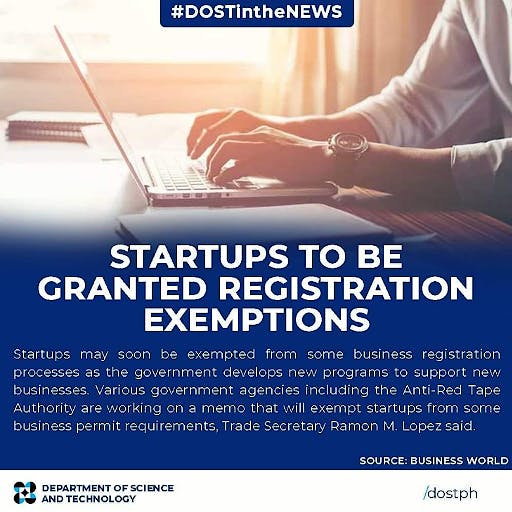
Our Way Forward
Startups: Innovate. Pivot. Iterate.
It all started for 10 bonus points on my final exam. I was in my senior year of college, during midterms of the 2nd Semester when one of my professors advertised a pitching event that he, together with an organization, would be hosting.

It all started for 10 bonus points on my final exam. I was in my senior year of college, during midterms of the 2nd Semester when one of my professors advertised a pitching event that he, together with an organization, would be hosting. He offered 10 points on our final exam as incentive to anyone who would join. I felt confident that I had gotten a good score on the midterm exam and need not join a pitching competition for a measly 10 points. I was aghast, however, when he revealed the correct answers to the midterm exams. I made a quick calculation of my estimated score… and winced. Yeah, I need those 10 extra points. After realizing that I had two hours left to meet the application deadline, I crammed and brainstormed a simple last-minute startup idea which could be pitched. I just wanted to meet the deadline, receive my bonus points, then lose graciously after the first stage of the competition.
In an unexpected turn of events, I won first runner-up and was offered incubation in Ateneo’s Technology Management Office (TMO). Thereafter, I pitched the same idea to UP’s UPSCALE Innovation Hub and won an incubation there as well. Little did I know that in just a few months after beginning my startup journey, COVID-19 struck and caused a worldwide pandemic that would wreak havoc on the world including my startup. We ended up going on an unexpected and indefinite hiatus, resuming only after offices began a semblance of normal operation in the late 3rd Quarter of 2020.

After the long-overdue 2019 Innovative Startup Act was signed decades behind other countries in supporting innovation through startups, the Philippines startup scene finally started to get attention from the government. With a globalization roadmap and an aim to have 500 startups with a valuation of over $2 billion, the support for Filipino-owned startups was higher than ever, with the government offering multiple incentives and programs to enable startups and incubators. We saw this when they pushed through with the nationwide Philippine Startup Week 2020 amid the pandemic with the theme “Filipino Startups Powering Up the New Normal”, showcasing Filipino resilience and highlighting Filipino entrepreneurial spirit.
However, resilience can only do so much. The support shown is still lacking for a lot of Philippine startups. Government should improve its capacity to independently assess a startup’s potential without overly relying on endorsements from other organizations. I am fortunate to have been incubated in Ateneo’s TMO, and as well as in UPSCALE, the Grand Champion of the first ever Philippine Startup Incubator Awards. Other startups are not quite as fortunate, as they are either not chosen for incubation, or even if they are chosen, they might not be able to afford the incubation fees. Venture capital funding or even government grants will only find validity and credibility with the backing of an incubator. If incubators do not see the startup’s potential, it would be extremely difficult to navigate the industry without their support, which includes getting connections, grants, and referrals, as well as access to other resources such as R&D and mentoring. Startups, however, are vulnerable to predatory practices whenever they present their pitches as these competitions are sometimes an avenue for piracy and one-upmanship. Scammers abound who readily exploit the naivete of startups desperately looking for funding, so caution is highly advised when attempting to gain investors or support.
The government offers multiple grant types for startups in different stages of development. Undoubtedly, competition is extremely fierce given the limited funding available. Unfortunately, applications are oftentimes subjected to bureaucratic red tape and burdensome requirements, without regard to the real nature of startups resulting in limited eligibility. For example, a minimum year of incorporation (which includes BIR registration, Local business permits, DTI or SEC registration) is required for applicants, when precisely these startups are still in incubation and would not be ripe enough to fully incorporate at this stage. There also is confusion and lack of cohesion in information dissemination as well as unrealistically short deadlines. I have applied for multiple grants, and each time they would give applicants minimal time to prepare all the necessary paperwork and have vague instructions as to who could be eligible.
Oftentimes, terms of reference are issued with only a few weeks deadline and the documentation to be submitted require months of preparation. One time I had to fill in a 12-page proposal that felt like another thesis and was given only two weeks before the deadline. Another time I used an online submission portal for our proposal which required us to redundantly input the exact same information which was already on the official PDF proposal document submitted on that very same website. Fortunately, these problems have been noted by our government and they are just recently attempting to fix this problem, starting with the Anti-Red Tape Authority. Our government may have good intentions and incredible goals, but they still have a long way to go to streamline the grants application process to attain the objectives of the law.

Source: Business World Online, March 23, 2021
As most startups’ ability to continue operations and development rely on government funding and investors, this sector saw a wave of layoffs, pay cuts, and shutdowns when funds were diverted to priority sectors such as healthcare and medicine. Even with the government allocating funds for grants, it was still not enough to keep startups afloat. In these uncertain times, startups are struggling to survive. Around 74% of startups globally have had to terminate contracts of full-time employees and around 41% are at risk of dying within 1-3 months if they do not raise additional capital. [1] As someone who had just taken my first step towards entrepreneurship, the whiplash of the difficult reality of startup life made me realize that successful startups had to walk through fire and brimstone to get to where they are, and the pandemic fueled that fire. But rather than losing hope, I was determined to get to the other side. After all, as Winston Churchill aptly stated, “If you are walking through hell, keep going.” Why stop there?
After my startup went on hiatus, I was in limbo. I had just completed my final semester in college online, my graduation ceremony was cancelled indefinitely, and I had no full-time paying job. Being the founder of a startup is especially difficult in the beginning since we need to bootstrap; meaning, everything is paid out of our own pockets. We receive no salary, and all our expenses are considered investment for the “future”.
In other words, you really need to believe in your idea enough to invest in it yourself and be determined to see the project through. Once the pandemic hit, I realized that our original business idea was not going to be viable at this time due to the shift in our target customer’s priorities and lifestyles. I reimagined all our existing business models and revenue streams. After deciding that our current system would be too expensive to pursue during this pandemic with a small Return on Investment (ROI), my team and I decided to make a small pivot to target a wider customer base and meet their needs.
Decisions in a startup are always risky; even minor decisions could either make-or-break it. Because of this, the major decision to pivot ended up being especially difficult to make. However, startups are meant to solve problems. Hence, if the situation changes what the problems are, then we should modify our solutions accordingly.
Instead of persisting with our original idea on the cosmetics industry, we pivoted to our now online service marketplace named Servini: Services at your Convenience. Servini now acts as a third-party aggregator of services, conveniently connecting service providers and freelancers with potential clients by simplifying the search and offering integrated features such as online payments and appointment scheduling. We provide customers with services on-demand as well as fun activities that they can do together with family and friends― connecting people together no matter the physical distance between them. Thus, despite our rocky start and our decision to pivot, with the help from our incubators and the efforts of our team, we are now about to finish our Minimum Viable Product (MVP) and are getting ready to market the website and go live.
COVID-19 created unique challenges that no one anticipated. Necessity, however, has always been the mother of invention and innovation, holding true especially during a pandemic. When things get rough, humans have always found ways to adapt and overcome challenges. The startup sector is no different. Most people would be afraid to fail, but in a startup, failure is par for the course and success is a never-ending journey. Life as a startup is about constantly pivoting and innovating. If the original idea was not successful, then learn from the mistakes and pivot the idea to better suit the market's needs.
Even with a successful startup, success is never assured as the market is very unpredictable and volatile. Times change, so startups and businesses must continuously adapt or get drowned by newcomers in the sector. One of the major advantages startups has over bigger businesses is its agility. Startup culture allows us to iterate quickly and adapt readily to changes without needing to go through multiple layers of organizational bureaucratic formalities. When consumers look for solutions to new problems, startups see market opportunities and quickly seize them, utilizing their flexibility.
As the pandemic brought new and unique challenges to industries and businesses of all types and sizes, spending habits and living habits changed. And with it, new market risks and opportunities arose, leading to business failures as well as new startups that would respond and adapt to meet the emerging consumer demands. One of the biggest shifts in the market is accelerated digitalization.
One example of this technological push can be seen when the government had to quickly adopt e-governance to the growing challenges posed by the pandemic. The e-commerce law of 2000 mandated that government transactions should be made available online within 2 years.[2] And yet, up until 2020, before the pandemic, there was minimal government presence in the digital landscape. The pandemic struck and in less than a year, we witnessed a massive shift to digital governance. What the e-commerce law could not do in 18 years, this pandemic achieved in a matter of months. Another example would be the rise of cloud kitchens; this is where people sell food without physical or official business registered restaurants by cooking at home and selling online. With little left to lose, many chose to turn this situation into an opportunity, leading to an entrepreneurial boom.
The pandemic may have led to a rise in entrepreneurial activity, but entrepreneurship is not for everyone. As a career choice, it is considered one of the toughest in the industry, involving vigorous competition, risk-taking decisions, cutthroat management, and the ever-changing demands of an unpredictable market. Entrepreneurs, however, have the soul of innovators and see problems as something to solve rather than a limitation. The startup life may not be for everyone, but you will never know until you try. “A dream is a wish your heart makes”; do not belittle your ideas, who knows, that idea could be the path to many new opportunities. Anyone can begin a startup or try the entrepreneurial life, but only time will tell If they have what it takes to succeed.

















